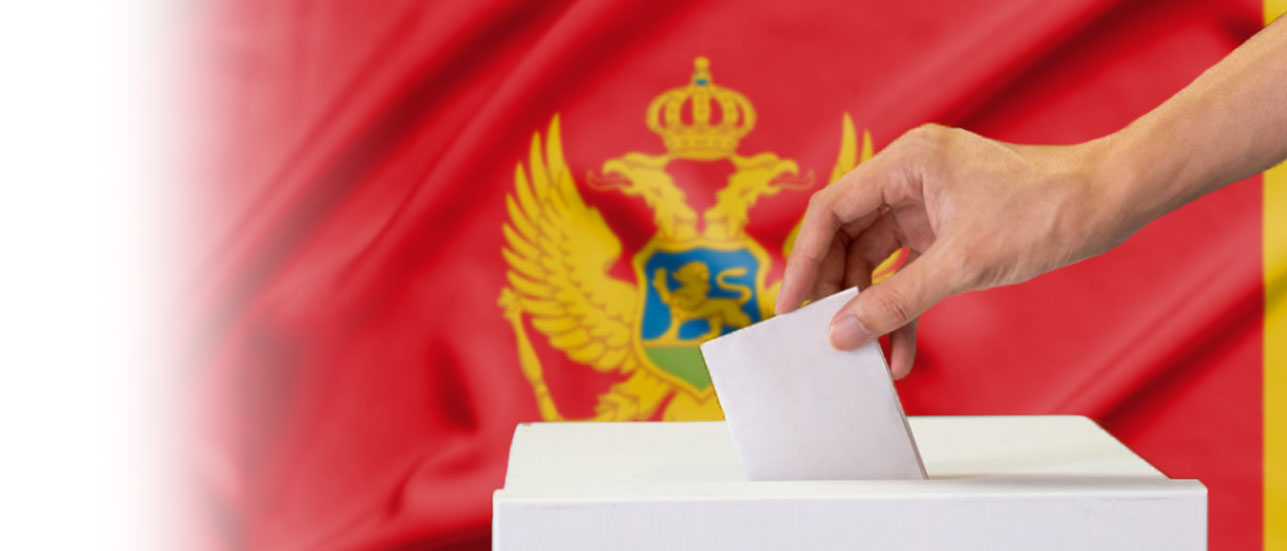Presidential elections in Montenegro
BiEPAG Reacts #2


Negative election results for Milo Đukanović’s Democratic Party of Socialists (DPS), who ruled for more than thirty years in Montenegro, are always perceived as a surprise. There has been a constant trend of falling support for this party, as shown first during the parliamentary elections in August 2020, where the DPS was defeated for the first time, as well as the poor performance of the DPS in the subsequent local elections. For several years Đukanović has resisted international pressure on the DPS to implement changes. The worse results for the DPS and Đukanović in the 2020 parliamentary elections compared to the 2018 presidential elections could be seen as a punishment of the DPS for its unwillingness to change after Đukanović’s endeavors to capture his own party as well as the state. The last local elections in Podgorica showed just how strong the newest party on the political scene is. Jakov Milatović was victorious in the central region, while Đukanović received more votes in the north and south. Milatović and Europe owe this trend to at least two reasons. Firstly, citizens’ dissatisfaction with existing leaders and parties and secondly, the success of fiscal reforms implemented by the leaders of Spajić and Milatović’s Europe Now movement while they were ministers in the 42nd Government, which significantly increased monthly incomes for citizens. Even though this reform caused quite a lot of damage to the budget, citizens recognized and rewarded the part that brought them immediate benefit. Representatives of the so-called pro-Montenegrin bloc object to Milatović for his ties to the church and his potential role in the events related to the enthronement of the metropolitan of the Montenegrin-Littoral Serbian Orthodox Church in September 2021. However, Milatović avoided the topic of the church during the campaign. However, such result and the second round were expected for many, but most were afraid of the scenario, and the potential secret agreement between Đukanović and the right-wing Democratic Front’s (DF) candidate Andrija Mandić on the transfer of votes to the former, which would lead these two candidates to the second round, and then guarantee Đukanović a victory. In the first round Đukanović won 36%, and the Social Democratic Party of Montenegro (SDP) candidate carried 3.2%, whose votes he can potentially count on. Two other candidates who together received close to 30% of the vote already support Milatović, which gives the candidate of the Europe Now movement a better chance in the second round. Of course, the result can be affected by turnout, since the first round turnout was only 55.6%, and in the last few years the turnout in the second round has been much higher. In short, the elections are a defeat of both Djukanović and his party, as well as those who managed to topple his government in 2020.
First round Presidential election results signaled that Montenegro has finally entered the post-Đukanović era.
Indeed, he has yet to lose formally in the second round, but sheer numbers demonstrate that the vast majority of Montenegrin citizens are against the man who has been the country’s undisputed leader for more than three decades.
There are two key takeaways from this situation. First, the fear of Vučić’s lackey, Andrija Mandić, going to the second round has pushed anti-Đukanović voters to act strategically and vote for the candidate Jakov Milatović, as the polls consistently demonstrated that he would beat Đukanović in the second round. This strategic voting is most evident through the abysmal result of Aleksa Bečić who was endorsed by prime minister Dritan Abazović. Second, it seems that ethnopolitics, to which Montenegrin politics has often been reduced in the past two decades, is dissipating.
New lines of political competition are emerging around socio-economic and everyday issues, cutting across ethnonational divides and building new alliances in the process. This changing political landscape is ripe with opportunities for new and old civic-oriented parties and movements.
Milo Djukanović’ poor showing marks the end of an era. After 32 years in power, it seems likely that Milo Djukanović will lose the presidential office, with the three leading opposition candidates garnering nearly 60% of the vote in the first round. It would complete the process that began in 2020 when his party narrowly lost the parliamentary elections.
His impending defeat highlights that without state control, the party is unable to generate the same level of support as through the use of state resources. What remains unclear is the post-Djukanović political equilibrium. Clearly, a hardline pro-Serbian and nationalist position, like Andrija Mandić platform, only appeals to a small minority.
This is encouraging for depolarizing the society and also keeping nationalist and illiberal parties in check. A key question now will be the relationship between the DPS and Milo Djukanović. Will the party be able to emancipate itself from its long-term president and become a center-left pro-Montenegrin party?
The party system remains in flux and as such there are still multiple lines of possible fragmentation. With parliamentary elections likely to take place soon, the question is whether there will be a stable majority, as the past years have led to dysfunctional governments which have not be able to move Montenegro closer to the EU or tackle other substantial reforms.
The results can also be understood as the defeat of the ruling parties since 2020. The United Reform Action party (URA), dominant in the outgoing minority government, overplayed its hand and lost much of its credibility. It supported its partner and erstwhile rival Aleksa Bečić instead of fielding its own candidate. Still, he came in fourth with just above 10 percent of support.